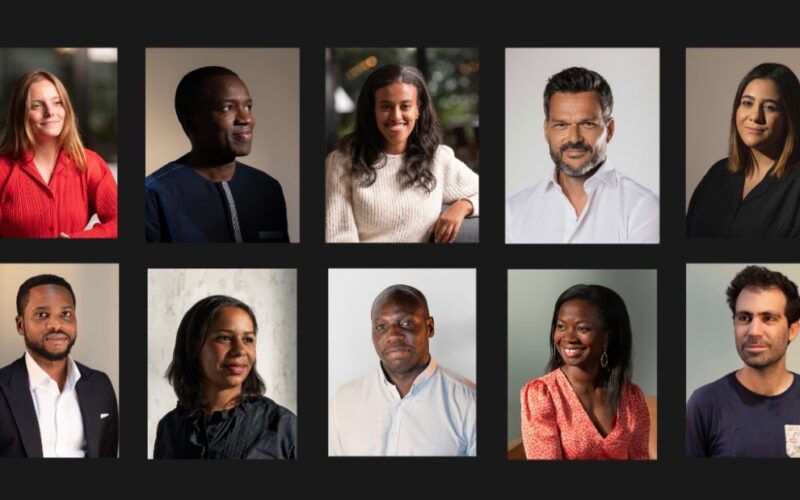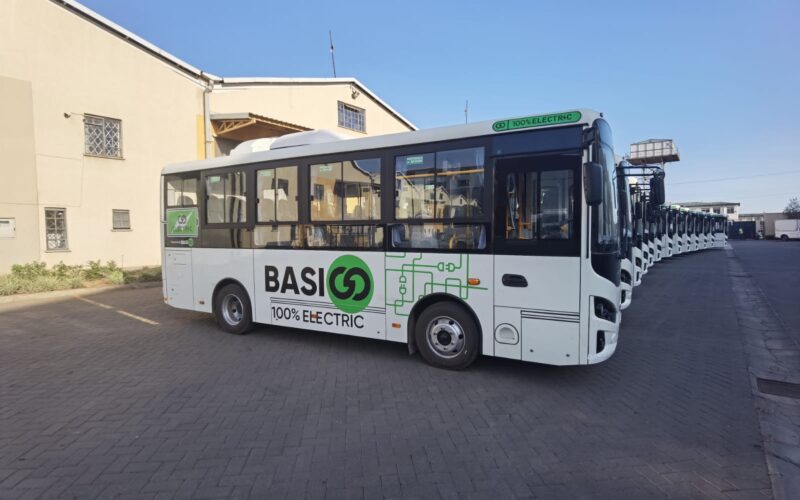Revibe, the Dubai-headquartered marketplace for refurbished electronics, has raised $17 million in a Series A funding round led by Partech, with participation from e& capital, Burda Principal Investments, and EQNX, alongside existing investors. The deal marks a significant bet on a new breed of African tech play—one that leverages the purchasing power of wealthy Gulf markets while building operational capacity in North African hubs.
The investment comes from Partech’s Africa II fund, a €280 million ($300M+) vehicle that has been aggressively deploying capital across the continent since its final close in February 2024. Partech’s activity accelerated notably through 2025, with the firm participating in at least four major deals in May alone, spanning Egypt, Nigeria, and South Africa.
The Cross-Border Arbitrage Play
Founded in 2022 by Hamza Iraqui and Abdessamad Ben Zakour, Revibe’s model is built on a geographic arbitrage that’s becoming increasingly common among ambitious African startups: use Egypt as the “operational engine” for quality control, refurbishment, and customer service, while targeting customers in higher-income Gulf markets like the UAE, Saudi Arabia, and Kuwait.
“Revibe is building the leading refurbished electronics platform for emerging markets,” said Cyril Collon, General Partner at Partech. “With Egypt as its operational engine and Dubai as its strategic hub, the team’s data-driven execution, and clear vision set them apart.”
This structure has become a template for success in the region. Egypt offers abundant technical talent, lower operational costs, and a large domestic market for testing and iteration. Meanwhile, Gulf markets provide higher average order values, greater purchasing power, and regulatory frameworks more conducive to e-commerce scale. Other startups—from mobility platforms to fintech apps—have followed similar paths, often incorporating operations in Cairo while keeping headquarters in Dubai or Riyadh.
The trend reflects deeper economic realities: Gulf countries face talent shortages and high operational costs, while North African hubs like Egypt and Morocco have deep pools of engineering and customer service talent but more limited consumer spending power. Combining both unlocks a powerful scaling dynamic.
Sustainability Meets Unit Economics
Revibe operates in the $6 billion MENA refurbished electronics market, which is projected to grow rapidly as sustainability concerns and affordability converge. The company has already sold over 80,000 refurbished devices since launch, generating cumulative savings of $14 million for customers while reducing CO2 emissions by over 4 million kilograms.
Each device undergoes a 50-point inspection process and comes with a one-year warranty—a critical trust signal in markets where consumers have traditionally been skeptical of refurbished tech. The company also offers free shipping and returns, a 10-day return policy, and 24/7 customer support blending human agents with AI.
The business model appears to be working. Revibe claims positive unit economics—an increasingly rare feat in emerging market e-commerce—and has expanded its product range from smartphones and laptops to gaming devices, accessories, and smartwatches. The company has also launched dedicated iOS and Android apps to streamline the purchasing experience.
Partech’s Aggressive Africa Deployment
The deal underscores Partech’s status as one of the most active institutional investors in African tech. Following the final close of its €280 million Africa II fund in February 2024—oversubscribed from an initial €230 million target—the firm has been deploying capital at a notably aggressive pace.
In May 2025 alone, Partech participated in funding rounds for Carrot Credit (Nigeria, $4.2M seed), Nawy (Egypt, $75M), MoneyFellows (Egypt), and an emergency response marketplace in South Africa. The firm’s Egypt focus is particularly notable: two of its May deals—Nawy and MoneyFellows—are Egypt-based and collectively account for $65 million in equity.
Partech’s Africa funds have historically focused on sectors critical to the continent’s employment and economic activity: fintech, agtech, healthtech, retail, FMCG, and agency banking. The firm’s first Africa fund, which closed at €125 million in 2018, backed 17 startups across nine countries and was responsible for attracting 10% of Africa’s total venture capital in both 2021 and 2022.
The Africa II fund targets initial tickets ranging from $1 million to $15 million, entering at stages from seed through Series C, with plans to back over 20 companies. Limited partners include development finance institutions like the IFC, EIB, KfW, FMO, and Bpifrance, alongside commercial investors and sovereign funds such as Africa Re and Dubai Future District Fund.
e& Capital’s Strategic Interest
The participation of e& capital—the venture arm of UAE telecom giant e& (formerly Etisalat Group)—adds a strategic dimension to the round. Launched in October 2022 with a $250 million fund, e& capital has been investing in early-stage tech startups with potential synergies to e&’s core telecom and digital services businesses.
e& capital’s presence in the round suggests Revibe may be exploring partnerships around digital payments, logistics infrastructure, or customer acquisition channels that leverage e&’s massive subscriber base across 16 markets in the Middle East, Asia, and Africa.
The Road Ahead
Revibe plans to use the new capital to enhance product quality, improve its service offering, and accelerate international expansion across the Gulf region and emerging markets. The company has already expanded its reach to South Africa and is positioning itself at the forefront of the “circular-tech” movement—making refurbished devices a mainstream choice rather than a budget alternative.
The company’s long-term ambition is explicit: make renewed electronics “the default way people buy devices—affordable, reliable, and sustainable.”
The deal also highlights the maturation of African venture capital. While overall funding to African startups declined significantly in 2023—dropping to between $2.9 billion and $4.1 billion from $4.6 billion to $6.5 billion the prior year—deals like Revibe’s suggest that capital continues to flow to startups with clear unit economics, proven traction, and scalable business models.
As cross-border strategies become more sophisticated, and as investors like Partech continue deploying at scale, the next generation of African tech champions may increasingly be defined not by geography alone, but by their ability to arbitrage talent, markets, and capital across borders.













Comments 3